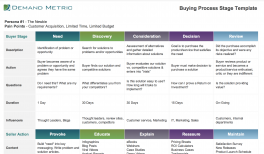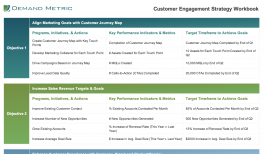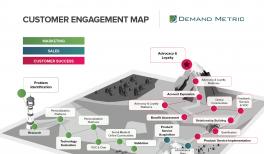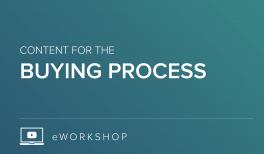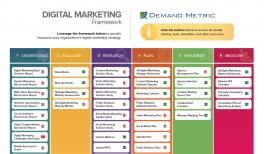From June 2015 to July 2015, Demand Metric and Demandbase collaborated to explore the current state of ABM adoption, detailing usage and user characteristics.
ABM Adoption Benchmark Report
Resource Overview
Related Resources
Introduction
For most marketers, when the buzz around a new marketing technology or category becomes audible and frequent, they start to pay attention. Account-Based Marketing (ABM) has generated a lot of buzz in recent months, and that awareness is creating momentum for ABM. Most B2B marketers now know about it, and for many that awareness has led to adoption. For those that are using it, ABM is more than just a marketing strategy du-jour; it has become the tour-de-force of their marketing plan. ABM has moved swiftly up the adoption curve in large part because B2B marketers realize its benefits very quickly. As this research will show, many of the advantages of ABM are realized almost from the onset of implementation and execution, and as usage of ABM matures, its impact is felt throughout the entire length of the sales funnel.
ABM as a concept is not new, but now with the introduction of purpose-built technologies, it has become scalable, making it simple to grasp and compelling. It allows marketing and sales to target the accounts they value most, including prospects, current customers and partners. This precise approach to targeting helps bring the right accounts to the table, making the marketing and sales process more efficient. Every company would prefer to spend its limited resources more efficiently targeting and engaging the right types of accounts, or even better, specific accounts. This outcome is the promise of ABM.
The typical adoption pattern for new technology and approaches is for well-funded and resourced early adopters to try them while the rest of us watch and wait to see if they are viable and affordable. Quite often, these early adopters are large companies. As appealing as new marketing strategies and technologies are, too often they are out of reach for all but the largest firms with the biggest budgets. As this report will detail, ABM is not the exclusive domain of the largest firms.
Demandbase and Demand Metric together explored the current state of ABM adoption, detailing usage and user characteristics. The study findings provide an understanding of ABM and how critical it is as a strategy for companies of all sizes.
Table of Contents
- Introduction
- Executive Summary
- The Current ABM Landscape
- ABM Results
- Future of ABM
- Analyst Bottom Line
- Acknowledgements
- About Demandbase
- About Demand Metric
- Appendix - Survey Background
Research Methodology
This ABM Adoption Benchmark Study survey was administered online during the period of June 15, 2015 through July 7, 2015. During this period, 352 responses were collected, 99 of which were disqualified (only B2B companies were surveyed). Of the remaining responses, 236 were complete enough for inclusion in the analysis. The representativeness of these results depends on the similarity of the sample to environments in which this survey data is used for comparison or guidance. Summarized below is the basic categorization data collected about respondents to enable filtering and analysis of the data.



